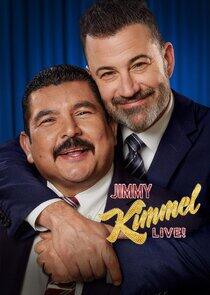Royal Institution Christmas Lectures - Season 40 / Year 2005

Season 40 / Year 2005
Network

DatesDez. 26, 2005 - Dez. 30, 2005
Episodes

Year 2005Episode 160 min
The Truth About Food: The Ape That Cooks
What did you have for your Christmas dinner? The traditional turkey? A vegetarian meal? And how did the turkey tradition start? What did people have for Christmas dinner 500 years ago? Just how is your Christmas meal turned into you? John takes us on a journey through time from our earliest ancestors, on the way exploring how scientists have come to understand the diets of our fossil ancestors from studying their teeth and bones and how differences in food habits among populations and cultures have arisen. We ask whether our diets today are a result of evolutionary adaptations or chance, and how origins of agriculture 10,000 years ago transformed the food habits of our ancestors as we moved from hunting and gathering to growing crops and keeping livestock. We humans are unique in the animal kingdom because we cook much of our food before we eat it. What has been the impact of cooking both on the range of foods we can eat and on our evolution? In this lecture we learn about genetic differences among populations in ability to deal with certain foods and come to understand why some like it hot, spicing up their food with chillies and other hot spices.
Dez. 26, 2005

Year 2005Episode 260 min
The Truth About Food: Yuck or Yummy?
What is your favourite food? What are the things you wouldn't touch with a barge pole? Food may be fuel, but it's also something we really enjoy - unless it's one of those foods you can't stand. What is it about some food that makes it irresistible, while other food is a real turn off? In 'Yuck or yummy' we explore the sensory world of food. How do taste, appearance, texture, smell and even the name of the food affect our enjoyment? What goes on in the brain when we enjoy, or are revolted by particular foods? We ask whether or not we are programmed by our evolutionary past to like some foods more than others and how our own experiences early on might affect our preferences for life. One person's pleasure in food may be another's disgust. How do individual differences arise? We also enter the kitchen and explore the chemistry of cooking: for example what is it that happens to food when we grill it to make it so tasty? There are some real surprises in discovering how different flavours work together, and this can be used to create unexpected dishes for our enjoyment.
Dez. 27, 2005

Year 2005Episode 360 min
The Truth About Food: You Are What You Eat
Our bodies are made from the food we have eaten during our lifetime. To survive and grow we need to eat enough of each of the essential building blocks of the human body. How did scientists discover the right mix of nutrients and how does what we eat match up? Is it true that eating fish makes you brainier, carrots help you see in the dark and spinach will make you stronger? John takes us through the maze of diet and health. We uncover the truth behind the claims for different kinds of foods, including organic food, and ask whether we instinctively tend to choose the balance of nutrients our bodies need. In different parts of the world, people eat remarkably different diets, some entirely vegetarian, some largely meat or fish. How do these different populations manage to get the building blocks they need when they eat such different things? Lots of people try to lose weight by dieting. But does it work? And if so, what is the secret of successful dieting?
Dez. 28, 2005

Year 2005Episode 460 min
The Truth About Food: When Food Goes Wrong
We uncover the hidden and not so hidden dangers that might lurk in our food and explode some of the myths that surround these risks. Are you or any of your friends allergic to one kind of food or another? Perhaps as many as one in ten children has a food allergy and allergies can sometimes kill. What happens when people react to food with an allergy? Why is food allergy apparently on the increase? Have you ever suffered a bout of food poisoning? We take a look at that two-month old piece of cheese you find at the back of the fridge. It's covered in blue mould. It may look unappetising but is it dangerous? What are the microbes in food that could harm you? How do they get there? If you get food poisoning you might throw up: why does the body react like this? Food is made up of chemicals but you often read that 'chemicals in food' are dangerous, whether they are pesticide residues or artificial colours or flavourings added to our food. What is the truth behind this?
Dez. 29, 2005

Year 2005Episode 560 min
The Truth About Food: Food for the Future
Most of us get enough to eat, but roughly 800 million people in the world go hungry every day. The world's population is set to increase from about six billion today to nearly ten billion by 2050. Will more people inevitably go hungry? Is the earth capable of producing enough food for the future? In the 20th century the green revolution produced a lot more food for the world's rapidly expanding population, through a mixture of better crops, more fertilisers and pesticides and more efficient machinery. Is the same solution going to work in the 21st century? What will be the impacts on the environment? Many people rely on fish for their survival, but already the world's oceans are over-exploited. What will happen to fish stocks in years to come? In this glimpse of the future, John asks whether new farming methods such as genetically modified crops will be the solution, or whether we will all have to become vegetarians. Science is also blurring the boundaries between food, medicines and drugs. Will the future bring us the chocolate bar that treats heart disease or the mood-enhancing potato crisp?
Dez. 30, 2005
Recently Updated Shows
Recently updated shows that might be of your interest.

Jimmy Kimmel Live
Jimmy Kimmel Live features a diverse lineup of guests that include celebrities, athletes, musical acts, comedians and human-interest subjects, along with comedy bits and a house band.
GenreComedy

Survivor
Eighteen to twenty castaways will compete against each other on Survivor. All castaways will compete to outwit, outplay, outlast and ultimately be crowned Sole Survivor.
GenreAdventure

The Walking Dead: Dead City
The Walking Dead: Dead City envisions the popular Maggie and Negan characters travelling into a post-apocalyptic Manhattan long ago cut off from the mainland. The crumbling city is filled with the dead and denizens who have made New York City their own world full of anarchy, danger, beauty, and terror.

